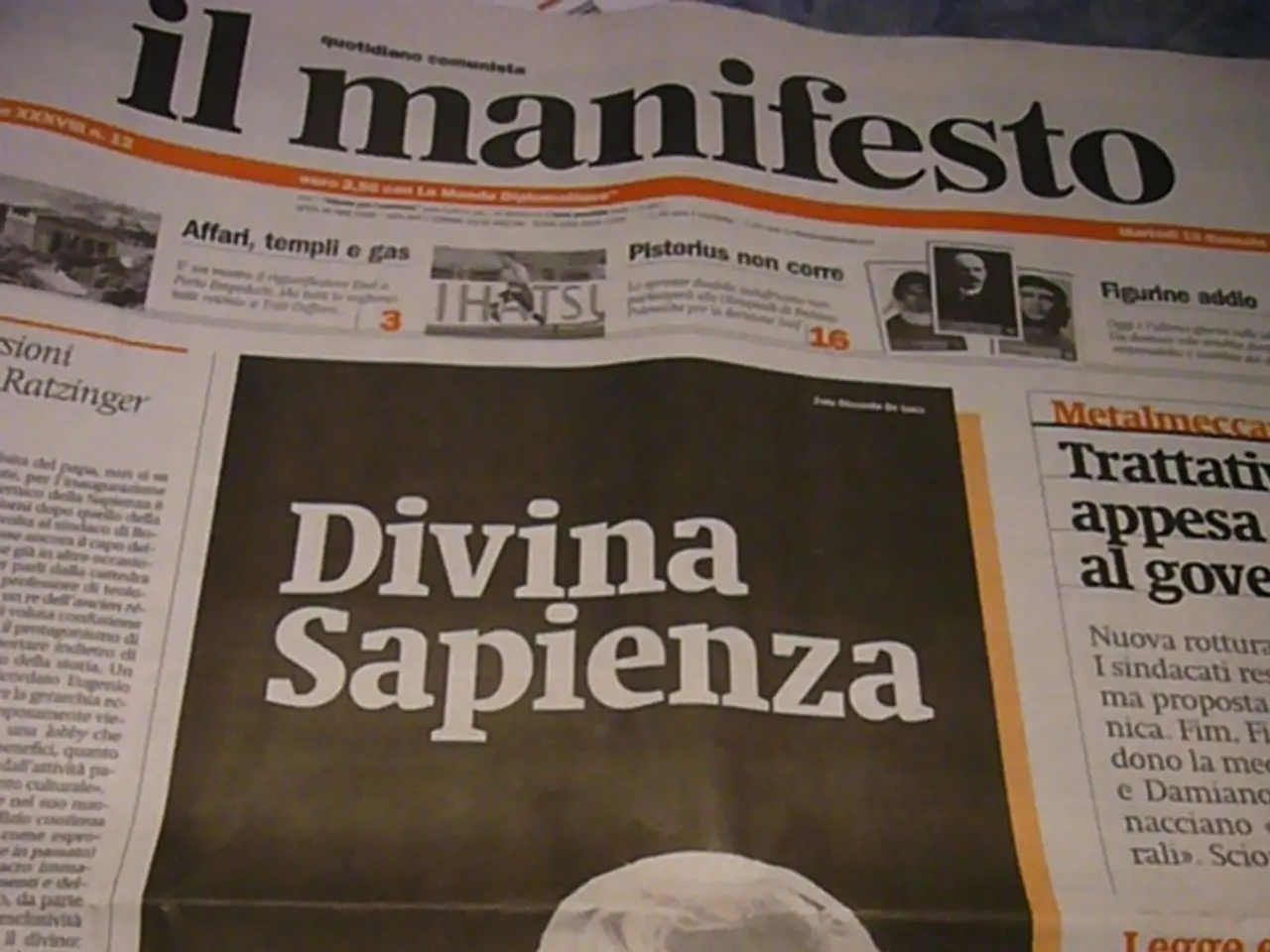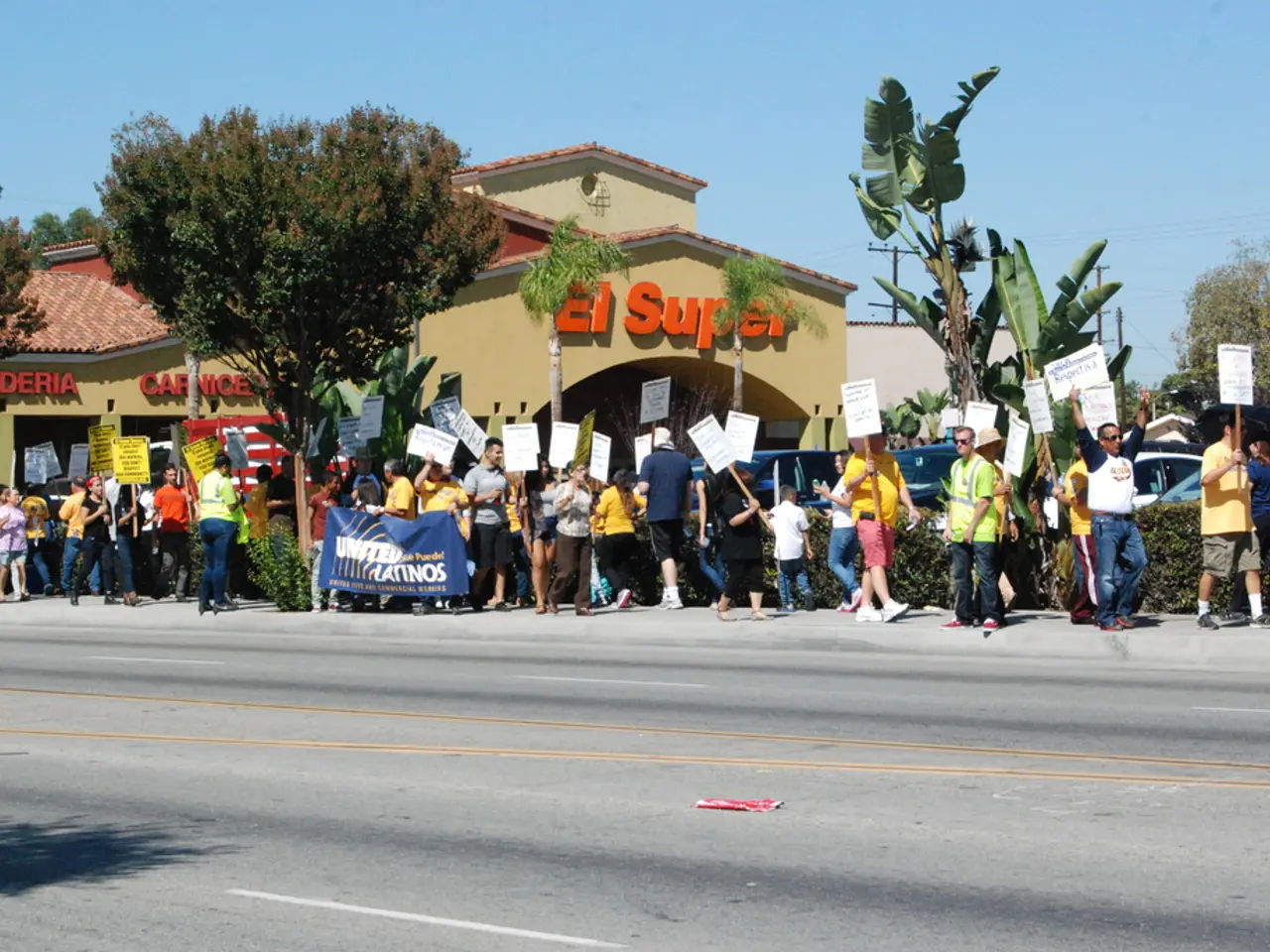Initiate the process of a confidence vote
The European Parliament is set to vote on a no-confidence motion against the Commission led by Ursula von der Leyen on July 10, 2025. The motion, initiated by far-right and ultra-conservative MEPs, notably Romanian MEP Gheorghe Piperea, has gathered 73 signatures, surpassing the minimum requirement of 72.
The motion primarily centers on transparency concerns regarding von der Leyen's text message exchanges with Pfizer CEO Albert Bourla during the COVID-19 vaccine procurement period, as well as allegations of political interference, dubbed "Pfizergate." Additionally, the Commission is accused of mismanagement in its corona policy and the alleged waste of four billion euros worth of unused corona vaccines.
However, political analysts and insiders predict that the no-confidence vote is expected to fail. This is due to the requirement for an absolute majority of at least 361 votes out of 720 members of the European Parliament, which currently appears unlikely.
The debate on the motion will take place on July 7 in Strasbourg, followed by the formal vote on July 10. Notably, the European Conservatives and Reformists (ECR), the political group that Piperea belongs to, has distanced itself from the motion, clarifying it is not an official group initiative.
A scenario where the Commission resigns en masse is considered unlikely due to the requirement for a majority of the members of the parliament, which appears challenging to achieve. This would mark the second no-confidence vote against the Commission in the European Parliament, following the unsuccessful one in 2014 against the then EU Commission led by Jean-Claude Juncker. The background to the 2014 no-confidence vote was revelations about tax advantages for multinational corporations in Luxembourg, where Juncker had been the country's prime minister for nearly 19 years.
Recently, the EU court ruled that the EU Commission's refusal to provide information about text messages exchanged between von der Leyen and the head of Pfizer during the corona crisis is currently being done without sufficient legal justification. The motion of no confidence also criticises the current Commission for its handling of the billion-dollar credit program for defense investments, which was planned without parliamentary involvement by the German CDU politician, Manfred Weber.
Weber, the leader of the EPP, has described the motion as a party-political game that would not find a majority in the parliament. He considers it irresponsible to stage such public stunts in times of economic uncertainty and global change. Weber states that Europe has been voting for a year and von der Leyen is leading the EU through turbulent times with a strong mandate.
[1] European Parliament website: https://www.europarl.europa.eu/news/en/headlines/politics/20230301STO59479/no-confidence-vote-against-von-der-leyen-commission-planned-for-july-2025 [2] Politico: https://www.politico.eu/article/european-parliament-no-confidence-vote-ursula-von-der-leyen-commission/ [3] Deutsche Welle: https://www.dw.com/en/european-parliament-to-vote-on-no-confidence-motion-against-von-der-leyen-commission/a-62593447 [4] The Guardian: https://www.theguardian.com/world/2025/jun/20/european-parliament-to-vote-on-no-confidence-motion-against-ursula-von-der-leyen-commission
- The no-confidence motion against the Commission led by Ursula von der Leyen, which revolves around transparency concerns, political interference, and mismanagement in the general news of Europe's corona policy and vaccine procurement, has garnered significant attention in policy-and-legislation discussions.
- Despite the ongoing debate and the impending vote on July 10, 2025, political analysts predict that the no-confidence vote is expected to fail due to the requirement for an absolute majority in the European Parliament, which currently appears unlikely.








